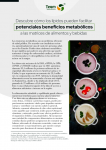Refined oils ‘unlikely to trigger an allergic reaction’

The study published in the Journal of Agricultural and Food Chemistry reports a method for determining residual proteins in refined oils – a potential trigger of allergic reactions. The research team behind the new method then used it to test for proteins in commercial samples of fully refined oils, as well as in samples of oil from different points of the refining chain.
“On the basis of the analysis of residual protein in the highly refined oils presented in this paper, even the most sensitive individuals included in such studies would need to consume at least 50 g of highly refined oil to experience subjective symptoms,” wrote the researchers, led by Clare Mills of the Institute of Food Research, UK.
They added that the findings are consistent with observations in clinical studies that the allergenic activity of residual proteins in refined soybean oils is insufficient to elicit a reaction in oral challenge tests.
‘May contain’
David Reading of Food Allergy Support, UK, said that the study highlights “a vital point for the food industry to consider.”
“According to our advisers, no conceivable allergenic risks would occur from the use of shared equipment for products that contain refined oils. The amount of proteins that could conceivably be transferred to the next product manufactured with this shared equipment is extraordinarily low,” said Reading.
“It is our personal view, based on conversations with experts in the food industry, that where a refined oil is used in products that are made on shared equipment, a “may contain” label on other foods using the same equipment would not be necessary and indeed would be highly misleading,” he added.
However, Reading explained that food manufacturers must perform their own risk assessments and make individual judgements on such issues.
Allergy threshold
Mills and her colleagues said that the existence of minimum eliciting doses, or thresholds, for allergenic proteins “is now generally acknowledged, and data have now been generated and analyzed for a number of allergenic foods including peanut and soy.”
They noted that several commercially important fully refined vegetable oils are derived from the seeds of plants that are recognized as important food allergens – such as peanuts and soy.
However, full refining of oils should result in the almost complete removal of any potentially allergenic protein fragments.
“Little is known about the contribution of different processing steps to protein removal, although this information is crucial to risk assessment, particularly when considering process modifications,” said the researchers.
As such a method to determine the levels of proteins in refined oils would be of benefit, they added.
The team developed a method to extract and quantify residual proteins in refined oils, and tested the method on commercially available soy oil.
The results of the tests confirmed that while unrefined oils contain significant amounts of protein, full refining reduces the content by at least 100-fold, meaning that even the most sensitive allergy suffers would need to consume over 50 grams of refined oil before experiencing symptoms of an allergic reaction.
Source: Journal of Agricultural and Food Chemistry
Volume 59, Issue 5, Pages 1752–1759, doi: 10.1021/jf103560h
“Quantification and Partial Characterization of the Residual Protein in Fully and Partially Refined Commercial Soybean Oils”
Authors: N.M. Rigby, A.I. Sancho, L.J. Salt, R. Foxall, et al




















